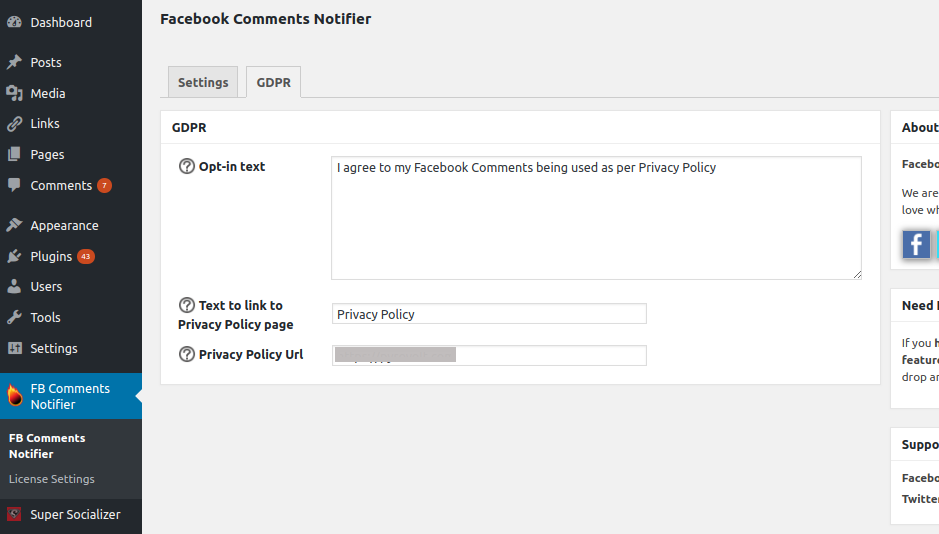

The general consensus of six undergraduates I work with, who used the bookmarklet last night, was that the ranking was fairly accurate but had some discrepancies.įirstly, the numerical difference between “first ranked” and others ranged from -1.7 to -8, but the difference between second through tenth ranked was much more gradual, usually varying by about 0.2.įacebook, it seems, weights first place very highly but other places not so much.

The more negative the number, the more Facebook thinks you are looking for that individual. Keeshin’s bookmarklet reveals the numbers used to rank the order of autocomplete options.

The Facebook search bar autocompletes search queries. Jeremy Keeshin’s Facebook Friends Rankings bookmarklet reveals how much you are viewing the pages of contacts, and perhaps insight into whether your habits are helpful or harmful. Now, however, a growing number of services are allowing individuals to dig into their own Facebook data. Specifically, Facebook and marketers could dig into it but users were more or less limited to browsing it. Until recently, the exploitability of this data was rather asymmetrical. The data is imperfect, but as Forbes describes, this “social graph” is as exploitable a resource as crude oil. Indirectly, both Marshall’s and Kuvacs’ research points to new ways of thinking about personal insight.įacebook collects information about “people and the connections they have to everything they care about”. While this led to initial growth, it was turned off in 2011 because of social problems concerning being seen and reciprocality.įacebook groups recently introduced reading receipts to prevent lurking, angering and stressing many users. For many years Japanese SNS Mixi showed the “footprints” of those who had viewed a user’s profile. It also seems to be a necessary evil for Social Network Service (SNS) popularity. The last of these, invisible audiences, is crucial to stalking. Invisible audiences: digital objects are seen by an unknowably large audience.Replicability: digital objects are infinitely and perfectly reproducible.Searchability: digital objects are easily found.Persistence: digital objects are infinitely transferable and storable.University of California researcher Danah Boyd argued in 2007 that networked publics have four properties: We should not be suprised that stalking is so integral to Facebook. It's okay to support Ukraine, but don't do it in the harmful way.Socially awkward penguin stalker. Spread awareness: newer version of node-ip is malicious, so downgrade and lock version using npm i -save-exact. You can now use "," to track multiple subs at a time.Making this project propriatary means my effort is meaningless, so I choose GNU GPL to make sure it stays open source.
#FACEBOOK NOTIFIER STALK LICENSE#
I choose this license because I spend a lot of time on this project, and I want everyone to be able access my hard work. Licenseįor details, please check out the LICENSE file. Thanks to these dependencies: nedb, axios, readline-sync, and Typescript. Don't want to? You can consider donating to Mozilla, Linux Foundation, and/or Open-Source Initiative. Can't code? File bug reports or suggestions, and that's pretty much what I need. The project is made using Typescript and NodeJS. Oh you wanna help? You can check the project out, and fix/add anything with a pull request. Wait until I respond, which should be within a day Provide any information you think might be useful Use the program normally until the abnormalĬopy everything past : If you're filing a bug report, start copying from this line.Ĭlick on the issue tab of this Github repository The output will become an absolutely mess.)


 0 kommentar(er)
0 kommentar(er)
